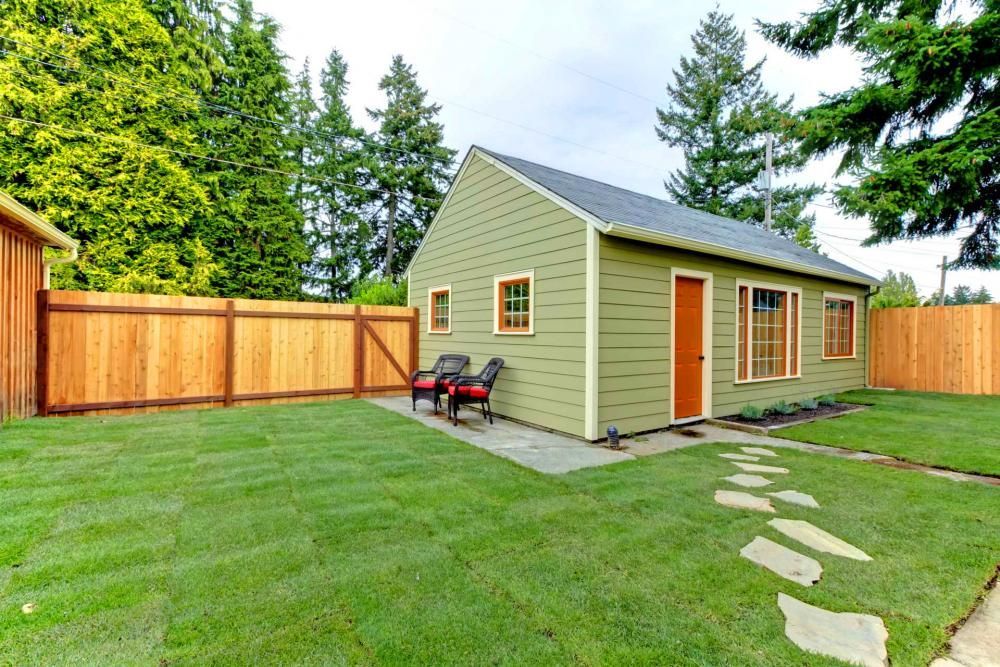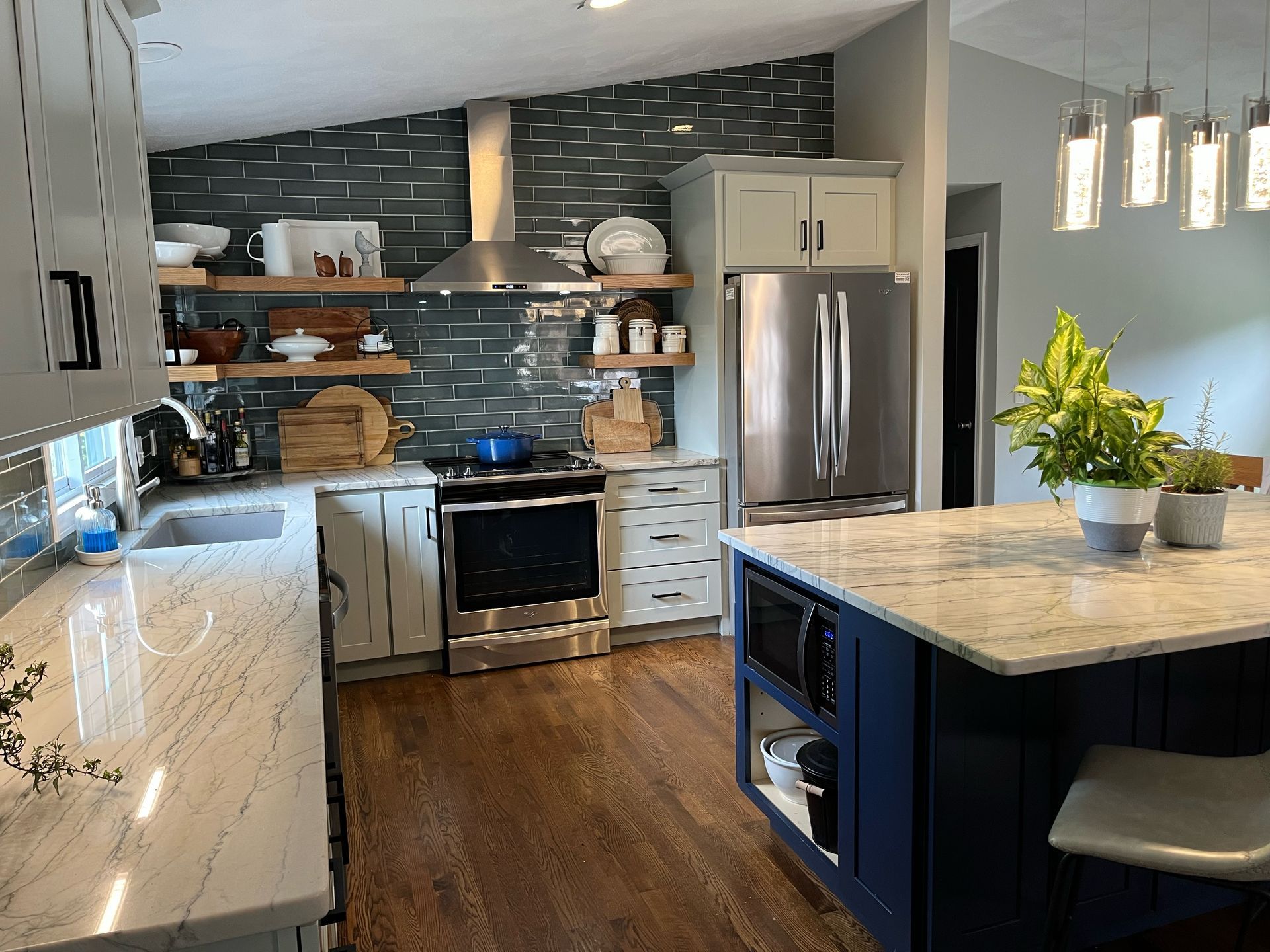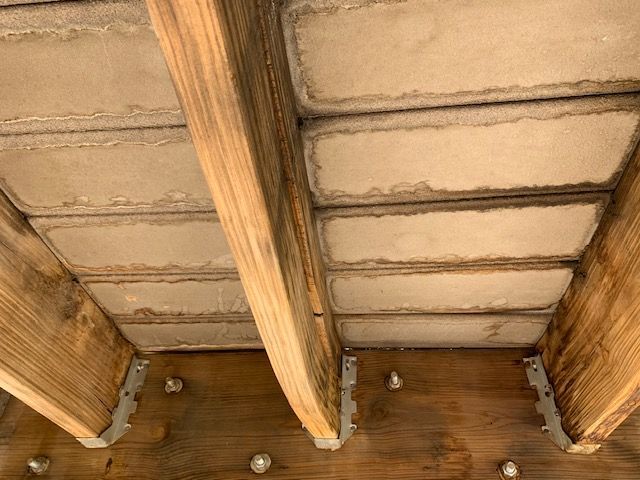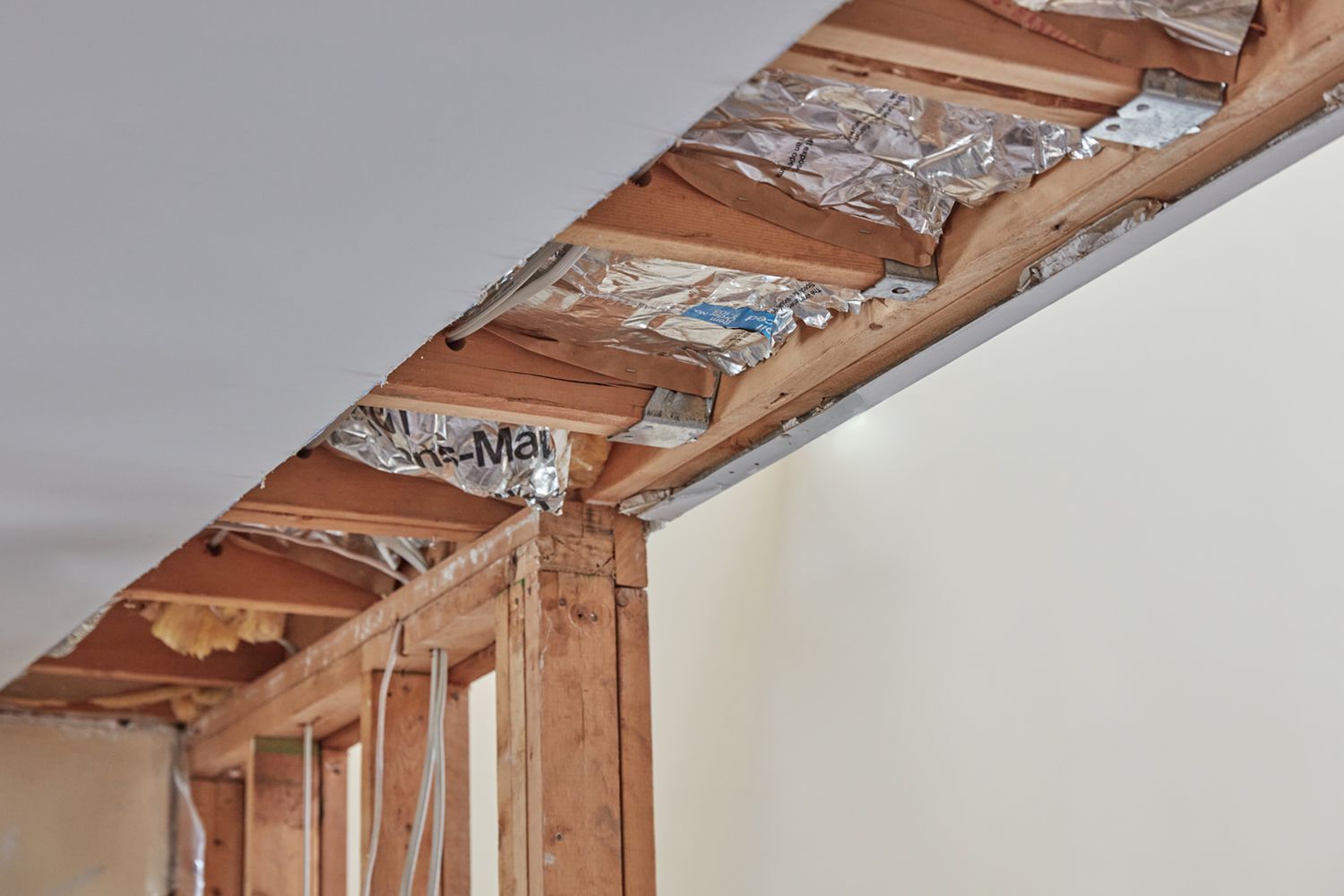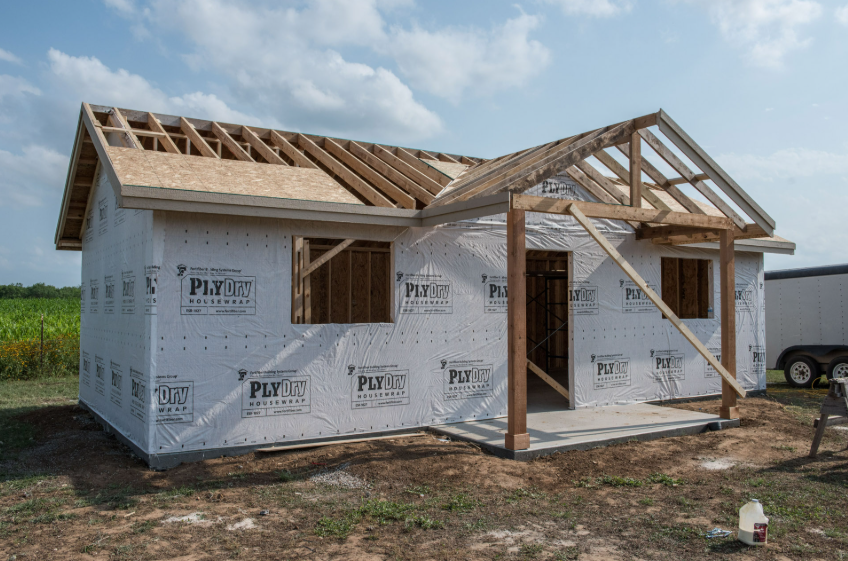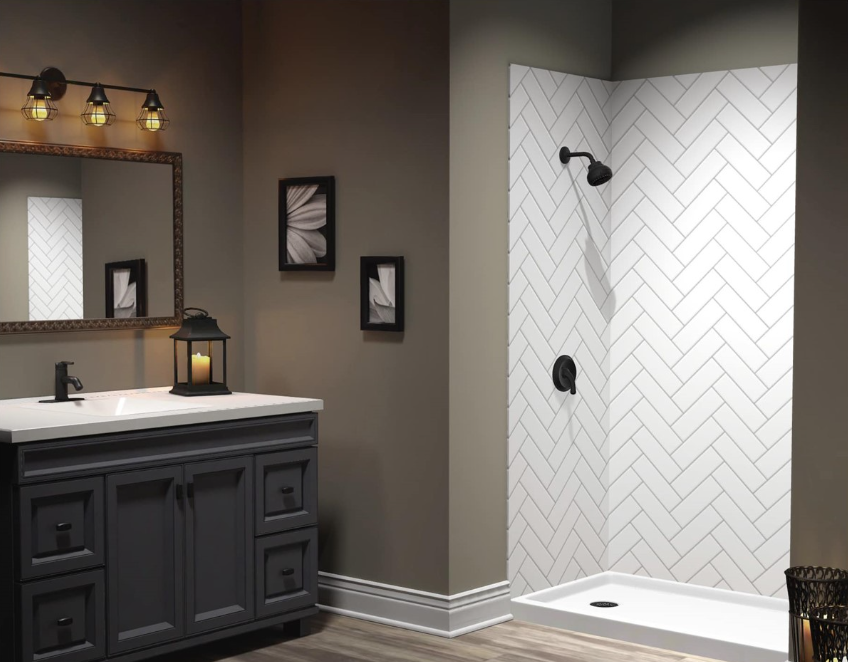Hurricane-Proof Your Rhode Island Garage
Rhode Island faces real hurricane threats with Atlantic storm systems regularly impacting the Ocean State. From devastating hurricanes like Carol (1954), Bob (1991), and more recent storms affecting coastal communities, protecting your garage from hurricane-force winds, flooding, and storm surge requires proactive preparation. This comprehensive checklist helps Rhode Island homeowners safeguard garages, vehicles, and stored possessions before hurricanes strike.
Why Rhode Island Garages Need Hurricane Protection
Rhode Island's 400+ miles of coastline faces direct hurricane exposure from Atlantic storms tracking northward. Coastal communities including Narragansett, Westerly, Charlestown, Little Compton, Newport, Jamestown, and Barrington experience the most severe impacts, but even inland areas like Providence, Cranston, and Warwick face hurricane-force winds, torrential rain, and potential flooding.
Hurricane season runs June 1 through November 30, with peak activity between August and October. Rhode Island garages storing vehicles, equipment, tools, and household items worth thousands of dollars need proper hurricane preparation preventing catastrophic damage and expensive losses. Climate change predictions suggest increasing hurricane intensity making protection more critical for Ocean State properties.
Garages face multiple hurricane threats: wind damage tearing off doors and roofs, flooding from storm surge and heavy rainfall, flying debris impacts, and power outages affecting automatic garage door openers. Comprehensive preparation addresses each threat protecting valuable property and preventing dangerous situations during storms.
Essential Hurricane-Proofing Upgrades for Rhode Island Garages
Wind-Rated Garage Doors
Standard garage doors fail in hurricane-force winds, becoming projectiles endangering property and people. Wind-rated garage doors engineered for coastal areas withstand sustained winds exceeding 110-140 mph:
Look for doors rated for "High Velocity Hurricane Zone" (HVHZ) meeting Miami-Dade County standards, the most stringent in the nation. These doors feature reinforced construction, additional bracing, and secure mounting systems preventing failure during extreme winds affecting Rhode Island coastal properties.
Wind-rated doors cost $1,500-4,000 installed depending on size and specifications. While expensive, they prevent $10,000+ in damage when hurricanes impact Narragansett Bay communities, South County coastal areas, and Newport properties facing direct ocean exposure.
Replace aging garage doors (15+ years old) with wind-rated alternatives before hurricane season begins. Spring installation (April-May) ensures protection before peak hurricane months and avoids contractor backlogs that develop when storms threaten Rhode Island.
Garage Door Reinforcement Systems
If replacing garage doors isn't feasible, reinforcement systems strengthen existing doors against hurricane winds:
Horizontal bracing systems install across garage door panels distributing wind loads and preventing door buckling. These retrofit kits cost $200-600 and significantly improve wind resistance in Providence, Warwick, and Cranston garages.
Vertical center braces provide additional support for wide garage doors (16+ feet) common in two-car Rhode Island garages. Center bracing prevents door sagging and failure when winds exceed 70-80 mph.
Professional installation ensures proper bracing without interfering with garage door operation. Improperly installed reinforcements can damage door mechanisms or create safety hazards requiring professional expertise for optimal protection.
Impact-Resistant Windows
Garage windows become dangerous projectiles when shattered by hurricane winds and debris. Impact-resistant windows or protective shutters prevent breakage protecting garages and vehicles:
Impact-resistant laminated glass withstands debris impacts without shattering. Two layers of glass bonded with plastic interlayers remain intact even when cracked, maintaining building envelope integrity during storms. These windows cost $400-800 each installed but provide permanent protection.
Storm shutters (roll-down, accordion, or panel-style) protect standard windows when deployed before hurricanes. Shutters cost $200-500 per window installed and work well for Rhode Island homeowners wanting economical protection without window replacement.
Plywood covers provide emergency protection when permanent solutions aren't installed. Pre-cut plywood panels sized for each window with pre-drilled mounting holes enable quick installation when hurricane watches are issued for Rhode Island coastal areas.
Proper Door and Window Seals
Weather stripping and door seals prevent water infiltration during hurricanes' horizontal rain and storm surge:
Inspect and replace deteriorated weather stripping around garage doors, service doors, and windows. Quality weather stripping costs $50-150 per door and dramatically improves water resistance protecting stored items in East Providence, Pawtucket, and Johnston garages.
Install door sweeps at bottom edges of service doors preventing water entry during flooding. Adjustable sweeps accommodate uneven floors common in older Rhode Island garages throughout Providence neighborhoods.
Apply flexible caulking around window frames, electrical penetrations, and wall-to-foundation joints sealing gaps where water infiltrates. Thorough sealing prevents thousands in water damage during hurricane flooding affecting South Kingstown, North Kingstown, and Exeter properties.
Structural Reinforcement
Garage structural integrity determines whether buildings survive major hurricanes:
Hurricane straps and clips connect roof framing to walls preventing roof lift-off during extreme winds. These metal connectors cost $5-10 each but prevent catastrophic roof failure. Professional installation ensures proper connection meeting Rhode Island building codes.
Reinforce garage door header beams supporting doors during wind events. Undersized headers in older Rhode Island garages may fail under hurricane loads requiring professional evaluation and potential reinforcement.
Anchor detached garages to foundations using foundation bolts or anchor straps. Older detached structures in Bristol, Warren, and Barrington sometimes lack proper anchoring allowing entire buildings to shift or collapse during hurricanes.
Foundation reinforcement prevents undermining from floodwaters and storm surge. Properties in flood zones throughout coastal Rhode Island benefit from elevated foundations, flood vents, and proper drainage protecting garage structures.
Pre-Hurricane Preparation Checklist for Rhode Island Garages
72 Hours Before Hurricane Arrival
When hurricane watches are issued for Rhode Island (typically 72 hours before expected impact), begin comprehensive garage preparation:
Secure Outdoor Items
- Move outdoor furniture, grills, planters, and decorations into garages
- Secure garbage cans, recycling bins, and yard tools
- Remove or secure awnings, flags, and hanging decorations
- Store children's outdoor toys and sports equipment
- Anchor or store ladders, wheelbarrows, and lawn equipment
Hurricane winds turn unsecured items into dangerous projectiles damaging property throughout Providence, Warwick, and Cranston. Storing everything indoors prevents damage and protects neighbors' properties from flying debris.
Protect Vehicles
- Park vehicles inside garages when possible
- Move vehicles to higher ground if flooding is predicted
- Document vehicle condition with photographs for insurance purposes
- Ensure vehicles have full fuel tanks and emergency supplies
- Never park under trees or near large structures that might collapse
Garage parking protects vehicles from falling trees, flying debris, and hail damage common during Rhode Island hurricanes. If garage space is limited, prioritize newer or more valuable vehicles.
Organize Garage Contents
- Move valuable items to upper shelves above potential flood levels
- Elevate items stored on floors using pallets or shelving
- Store important documents in waterproof containers
- Move chemicals and hazardous materials to high locations
- Create clear pathways for emergency access
Storm surge can flood garages 3-6 feet deep in coastal Rhode Island areas. Elevating storage prevents water damage to tools, equipment, and household items during flooding events.
48 Hours Before Hurricane Arrival
As hurricanes approach Rhode Island, intensify preparation focusing on structural protection:
Install Window Protection
- Deploy storm shutters or install pre-cut plywood panels
- Board up all garage windows from exterior
- Secure fasteners properly ensuring panels won't blow off
- Label panels for easy identification during installation
- Store shutters or panels accessibly for future storms
Window protection prevents the most common hurricane damage: broken windows allowing wind and rain inside garages causing extensive water damage and structural stress.
Garage Door Reinforcement
- Install garage door bracing systems if not permanently installed
- Check automatic garage door disconnect mechanisms
- Ensure manual opening capability if power fails
- Test garage door operation verifying proper function
- Lock garage doors using side bolts or additional locking mechanisms
Reinforced, secured garage doors prevent structural failure during hurricanes protecting vehicles and stored items worth tens of thousands of dollars in Narragansett, South Kingstown, and Westerly properties.
Emergency Equipment Preparation
- Charge portable power stations and battery packs
- Prepare battery-operated lights and radios
- Store emergency supplies (water, non-perishable food, first aid)
- Locate important documents in waterproof containers
- Prepare evacuation supplies if ordered by authorities
Power outages lasting days or weeks follow major hurricanes in Rhode Island. Prepared garages with emergency supplies provide critical resources during extended power failures.
24 Hours Before Hurricane Arrival
Final preparations occur as hurricanes near Rhode Island:
Final Security Checks
- Walk property perimeter securing anything overlooked
- Double-check all windows and doors are secured
- Verify drainage systems are clear of debris
- Document garage contents with photographs or video
- Review emergency evacuation routes and plans
Complete documentation helps insurance claims if damage occurs. Photograph vehicles, tools, equipment, and storage areas from multiple angles creating thorough records.
Vehicle and Fuel Preparation
- Fill vehicle fuel tanks before stations run out
- Withdraw cash (ATMs may not work during outages)
- Charge all electronic devices fully
- Prepare "go bags" if evacuation becomes necessary
- Monitor official Rhode Island emergency management updates
Hurricane evacuations sometimes become mandatory for coastal Rhode Island communities. Prepared vehicles and supplies enable safe evacuation if ordered by authorities.
Disconnect Automatic Systems
- Disconnect automatic garage door openers preventing operation during power surges
- Unplug unnecessary electronics and appliances
- Turn off water supply if flooding threatens
- Secure propane tanks and fuel containers
- Close main water valves if evacuation occurs
Power surges when electricity returns damage electronic garage door openers and other equipment. Disconnecting systems prevents expensive replacement costs after storms pass.
During the Hurricane: Safety Protocols
Never Use Garages as Storm Shelters
Garages are not safe hurricane shelters:
- Garage doors are structural weak points vulnerable to failure
- Detached garages offer no protection from flying debris
- Carbon monoxide from vehicles presents poisoning risks
- Flooding can trap occupants in dangerous situations
Always shelter in main home interior rooms away from windows. Interior bathrooms, closets, and hallways on lowest floors provide safest locations during hurricanes in Providence, Cranston, and Warwick.
Avoid Garage Use During Storms
Never enter garages during hurricanes:
- Opening garage doors allows extreme winds inside
- Falling debris and projectiles create deadly hazards
- Electrical hazards from power lines and flooding
- Structural collapse risks during intense winds
Wait until official all-clear announcements before checking garages. Rhode Island emergency management issues these notices when it's safe to venture outdoors after storms pass.
Monitor Conditions Safely
Stay informed without unnecessary risks:
- Monitor NOAA weather radio for official updates
- Follow Rhode Island Emergency Management Agency (RIEMA) guidance
- Track storms using weather apps and local news
- Never go outside during eye of hurricane (calm period between eyewalls)
- Wait for official all-clear before exterior inspections
Hurricane eyes create false security with temporary calm before violent winds resume from opposite directions. Remain sheltered throughout entire storm duration.
Post-Hurricane Garage Assessment and Recovery
Immediate Safety Assessment
After hurricanes pass and authorities issue all-clear notices, carefully inspect garages:
Safety First Approach
- Photograph damage before touching anything for insurance documentation
- Check for structural damage: sagging roofs, cracked walls, shifted foundations
- Look for downed power lines near or on garage structures
- Identify water infiltration and flooding damage
- Note damaged windows, doors, and other openings
Do not enter garages showing structural damage without professional evaluation. Buildings weakened by hurricanes may collapse during inspection attempts endangering occupants throughout Rhode Island communities.
Electrical Hazards
- Never enter flooded garages with standing water
- Shut off electricity at main panel if flooding occurred
- Check for exposed wiring or damaged electrical fixtures
- Identify submerged outlets and light fixtures
- Call licensed electricians before restoring power to damaged systems
Electrocution risks remain after floodwaters recede. Water-damaged electrical systems require professional evaluation and repair before safe use in East Providence, Pawtucket, and Central Falls garages.
Gas and Chemical Hazards
- Ventilate garages before extended entry
- Check for propane leaks from damaged tanks
- Identify spilled chemicals, gasoline, or other hazardous materials
- Look for natural gas odors indicating line damage
- Evacuate immediately and call utilities if gas leaks detected
Gas leaks create explosion and poisoning hazards. Never attempt gas system repairs yourself - always contact National Grid or licensed professionals when gas problems are suspected.
Water Damage Mitigation
Flooded Rhode Island garages require immediate water removal preventing mold, structural damage, and item deterioration:
Water Removal
- Pump or bail standing water as quickly as possible
- Use wet-dry vacuums removing remaining water
- Remove saturated materials (cardboard, fabrics, ruined items)
- Open doors and windows promoting air circulation and drying
- Use fans and dehumidifiers accelerating drying process
Mold grows within 24-48 hours in wet materials. Rapid water removal and drying prevents extensive mold remediation costs in humid Rhode Island climate conditions.
Item Salvage
- Prioritize saving valuable items and irreplaceable possessions
- Clean and dry tools immediately preventing rust
- Rinse items contacted by floodwater (contaminated with sewage and chemicals)
- Photograph damaged items for insurance claims
- Dispose of items beyond salvage properly
Flood water contains contaminants requiring thorough cleaning before items are safe to use. Wear protective equipment when handling flood-damaged materials in South Kingstown, Charlestown, and Westerly.
Structural Drying
- Remove wet insulation if walls or ceilings are saturated
- Cut away wet drywall to at least 12 inches above water lines
- Dry wood framing thoroughly before rebuilding
- Monitor moisture levels using meters ensuring complete drying
- Treat exposed wood with mildewcides preventing mold growth
Inadequate drying causes ongoing problems including mold, rot, and structural deterioration. Professional restoration companies ensure thorough drying in severely damaged Newport, Jamestown, and Little Compton garages.
Insurance Claims Process
Document damage thoroughly for insurance claims:
Comprehensive Documentation
- Photograph and video all damage from multiple angles
- List damaged items with estimated values
- Keep receipts for temporary repairs and mitigation costs
- Document contractor estimates for permanent repairs
- Save samples of damaged materials as evidence
Detailed documentation supports insurance claims maximizing recovery for hurricane damage in Rhode Island properties. Take more photographs than seems necessary - thorough documentation proves invaluable during claims processes.
Filing Claims Promptly
- Contact insurance companies immediately after storms
- Provide preliminary damage estimates within required timeframes
- Request adjusters inspect damage as soon as possible
- Keep detailed records of all communications with insurers
- Consider public adjusters for complex or disputed claims
Hurricane damage overwhelms insurance companies with claims. Early filing ensures faster processing and quicker repairs restoring normal life in Providence, Warwick, and Cranston after major storms.
Hurricane-Resistant Garage Design for Rhode Island
Elevation Strategies
Properties in Rhode Island flood zones benefit from elevated garages:
Raised Foundation Design
- Elevate garage floors above base flood elevation levels
- Use flood-resistant materials below elevation levels
- Install proper foundation venting preventing structural damage
- Design accessible ramps or approaches for elevated garages
- Incorporate storage beneath elevated structures
Elevation prevents flood damage in vulnerable coastal areas throughout South County, East Bay communities, and Narragansett Bay shoreline properties. While expensive ($20,000-50,000), elevation provides long-term flood protection.
Split-Level Configurations
- Position garages on higher ground areas of properties
- Design multi-level garages with valuable items on upper levels
- Create flexible space usable for storage and parking
- Maximize natural drainage away from structures
- Consider future flooding when designing new construction
Thoughtful positioning reduces flood risks without expensive elevation projects suitable for North Kingstown, Exeter, and Richmond properties with varied topography.
Material Selection for Coastal Durability
Hurricane-resistant garages use materials withstanding extreme conditions:
Exterior Materials
- Fiber cement siding resisting wind, moisture, and impact
- Metal roofing shedding wind and water effectively
- Impact-resistant windows withstanding debris strikes
- Corrosion-resistant hardware and fasteners for coastal exposure
- Properly sealed and flashed penetrations preventing water entry
Quality materials cost more initially but prevent repeated repair costs after hurricanes impact Rhode Island's coastal communities regularly during storm seasons.
Corrosion Prevention
- Galvanized or stainless steel fasteners and hardware
- Powder-coated metal components resisting salt air corrosion
- Marine-grade treated lumber for framing members
- Proper ventilation preventing moisture accumulation
- Regular maintenance extending material lifespans
Rhode Island's coastal environment accelerates corrosion requiring materials specifically selected for salt air exposure in Narragansett Bay and oceanfront locations.
Flood-Resistant Features
Minimize flood damage with resistant materials and design:
Flood-Resistant Materials
- Concrete or masonry floors resisting water damage
- Metal or plastic shelving rather than wood systems
- Waterproof wall coverings below flood elevation
- Sealed concrete walls preventing water infiltration
- Elevated electrical systems above flood levels
Flood-resistant materials minimize damage even when flooding occurs, reducing recovery costs and time after storms in South Kingstown, Charlestown, and Westerly.
Drainage Systems
- Proper grading directing water away from garages
- Foundation drains preventing water accumulation
- Sump pumps removing water from lower areas
- Automatic pumps with battery backup for power outages
- Regular drainage system maintenance ensuring functionality
Effective drainage prevents flooding from heavy rainfall accompanying hurricanes even in areas not threatened by storm surge or tidal flooding.
Emergency Equipment Storage in Hurricane-Ready Garages
Essential Emergency Supplies
Store hurricane emergency supplies in accessible garage locations:
Power and Lighting
- Portable generators with proper outdoor operation procedures
- Battery-powered lanterns and flashlights
- Extension cords and power strips
- Fuel storage (gasoline, propane) following safety guidelines
- Solar chargers for electronics and batteries
Power outages following Rhode Island hurricanes often last 3-7 days or longer. Proper equipment provides electricity for refrigeration, medical devices, and communication during extended outages.
Tools and Equipment
- Chain saws for removing fallen trees and branches
- Hand tools for temporary repairs
- Tarps and plastic sheeting covering damaged areas
- Duct tape, rope, and bungee cords
- Batteries in various sizes
Emergency tools enable temporary repairs preventing further damage before professional contractors arrive. Hurricane demand overwhelms contractors requiring weeks or months before permanent repairs begin.
Safety Equipment
- First aid supplies and medications
- Work gloves, safety glasses, and protective clothing
- Battery-operated weather radio receiving NOAA alerts
- Emergency contact information and insurance documents
- Cash (ATMs may not function during outages)
Prepared garages support families during post-hurricane recovery when normal services are disrupted throughout Rhode Island communities.
Annual Hurricane Preparation Timeline
Early Season Preparation (April-May)
Prepare garages before hurricane season begins June 1:
- Inspect garage doors, windows, and structural elements
- Complete repairs identified during inspections
- Test emergency equipment and replace expired supplies
- Review insurance coverage verifying adequate protection
- Purchase supplies before hurricane season demand
Spring preparation prevents last-minute scrambling when tropical storms threaten Rhode Island. Early supply purchases avoid shortages that develop as hurricanes approach.
Mid-Season Vigilance (June-October)
During peak hurricane season maintain readiness:
- Monitor tropical weather systems weekly
- Keep vehicles fueled and emergency supplies current
- Stay informed about Rhode Island evacuation routes and shelters
- Maintain clear garage spaces allowing vehicle protection
- Review family emergency plans and communication procedures
Active hurricane seasons require constant vigilance as storms can develop and intensify rapidly threatening Rhode Island with minimal warning.
Post-Season Review (November-December)
After hurricane season ends evaluate preparation and protection:
- Assess how preparations worked during season
- Repair any damage from storms that occurred
- Replace used emergency supplies
- Update hurricane plans based on lessons learned
- Schedule upgrades and improvements before next season
Continuous improvement creates increasingly resilient Rhode Island garages better protecting families and property with each passing hurricane season.
Ready to hurricane-proof your Rhode Island garage with professional upgrades and preparation? Rockhouse Construction specializes in hurricane-resistant garage improvements including wind-rated door installation, structural reinforcement, flood protection measures, and complete garage renovations designed for Rhode Island's coastal conditions. Our experienced team understands hurricane threats facing Ocean State properties and designs solutions providing maximum protection for your vehicles, equipment, and stored possessions. From simple reinforcement projects to comprehensive hurricane-resistant garage construction, we deliver quality workmanship ensuring your garage withstands severe weather.
Contact us today for a free consultation and discover how professional hurricane preparation can protect your property and provide peace of mind throughout hurricane season.
